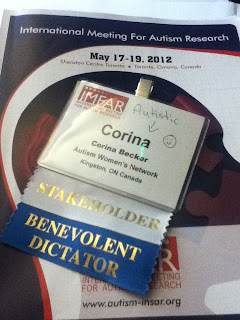You know those crisis help phone lines? The woman's shelter lines, the pregnancy lines, the talk help, kids help lines, and mental health crisis lines? Those. It has occurred to me that those help lines are kinda ableist.
Think about it. They all require people call them over the telephone and speak to them.
In a time when you can get customer service over an internet live chat, where are the help lines for people who are non-verbal, people who communicate better in written or typed word, or who are so into crisis mode that they lose all verbal capabilities? Or people whom English is not their first language or whom aren't fluent in English? Or who have sensory problems and have difficulties using a telephone? Or are in a situation where they cannot seek assistance through their caregivers to communicate the crisis?
Also, when in crisis, it can be very hard to verbalize the pain and what going through, even if one does retain verbal capabilities. Failure to address the needs of the non-verbal population means that there are people who are not being supported or have access to community resources and accommodations. This leads people further into crisis, with no where to turn for help.
So when someone goes into crisis mode, they also go into survival mode, a state where someone purposely or subconsciously shuts down skills in order to cope. This is dangerous, because now the person have further difficulty in accessing community help and services, cannot communicate, and is more vulnerable to further crisis, including escalation into self-harm coping strategies. The longer in this state, the pain caused by the crisis can lead to extreme measures of self-harm, eventually leading to suicidal behaviour.
At this stage, there are more than one crisis; the initial crisis and the mental health crisis. The results of care then become dependent not only on the structure of support for that person, but also the preparation of local mental health services in dealing with complicated crisis situations.
Now, there are online resources available for mental health crisis,
such as the list provided by Boggle, including a Forum and live-chat online services. However, there needs to be access to non-verbal crisis support across the global, and a connection to local mental health services. With many service providers, crisis support phone lines already exist, and they maintain a team to respond to calls. What if there was also a way to text into the crisis line? What about maintaining a Twitter and/or Facebook account, where it's possible to private message the operator? Monitoring Twitter and Facebook messages can be done while monitoring a phone line. There is also the option of a Forum, where there can be group support and private messaging options for daily support as well as crisis support.
Non-verbal accessibility is possible, and is incredibly valuable to a wide population, not just non-verbal Autistic people. It has the possibility of connecting mental health services to the online communities, to people who cannot otherwise access much needed support. Yes, it does require making adjustments, getting people to write code, retraining employees, and other costly changes. But this is an area of need within the disability and mental health communities that is not being adequately met, resulting in the isolation and despair of many. It also sends out a negative message to people, that their needs are not
deemed worth to be addressed, that their crisis, their methods of
communication, are not significant.
In my opinion, it is the obligation of mental health services to develop ways to make their services accessible to all. Otherwise, they are failing to help the people that they are suppose to support, a failure that can have drastic and fatal results. Yet, it is possible to correct
this, to make crisis and other types of support accessible, if service providers are able to embrace alternative, online and text-based methods of communication. Then truly they will be able to reach those who need their services.

